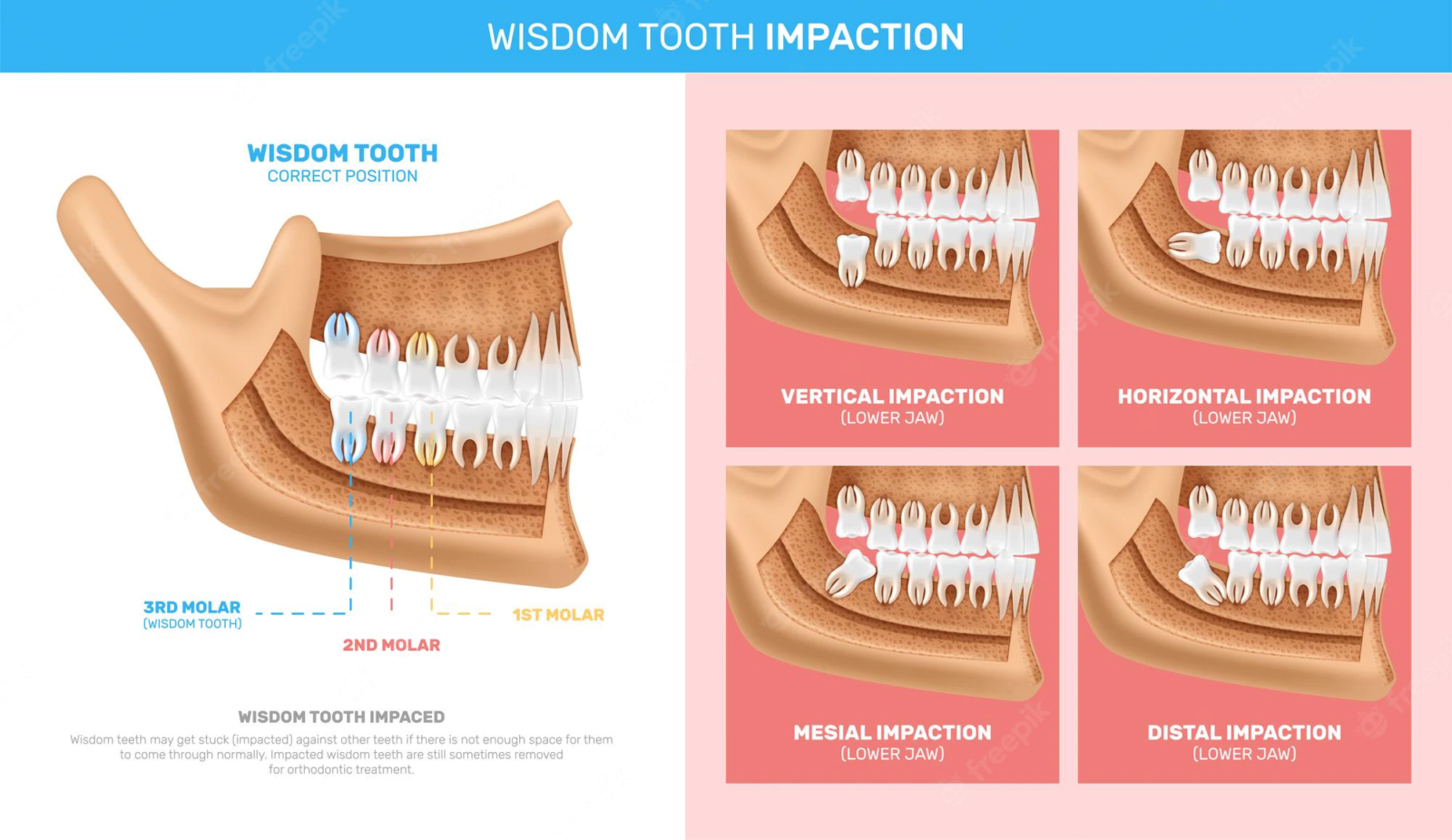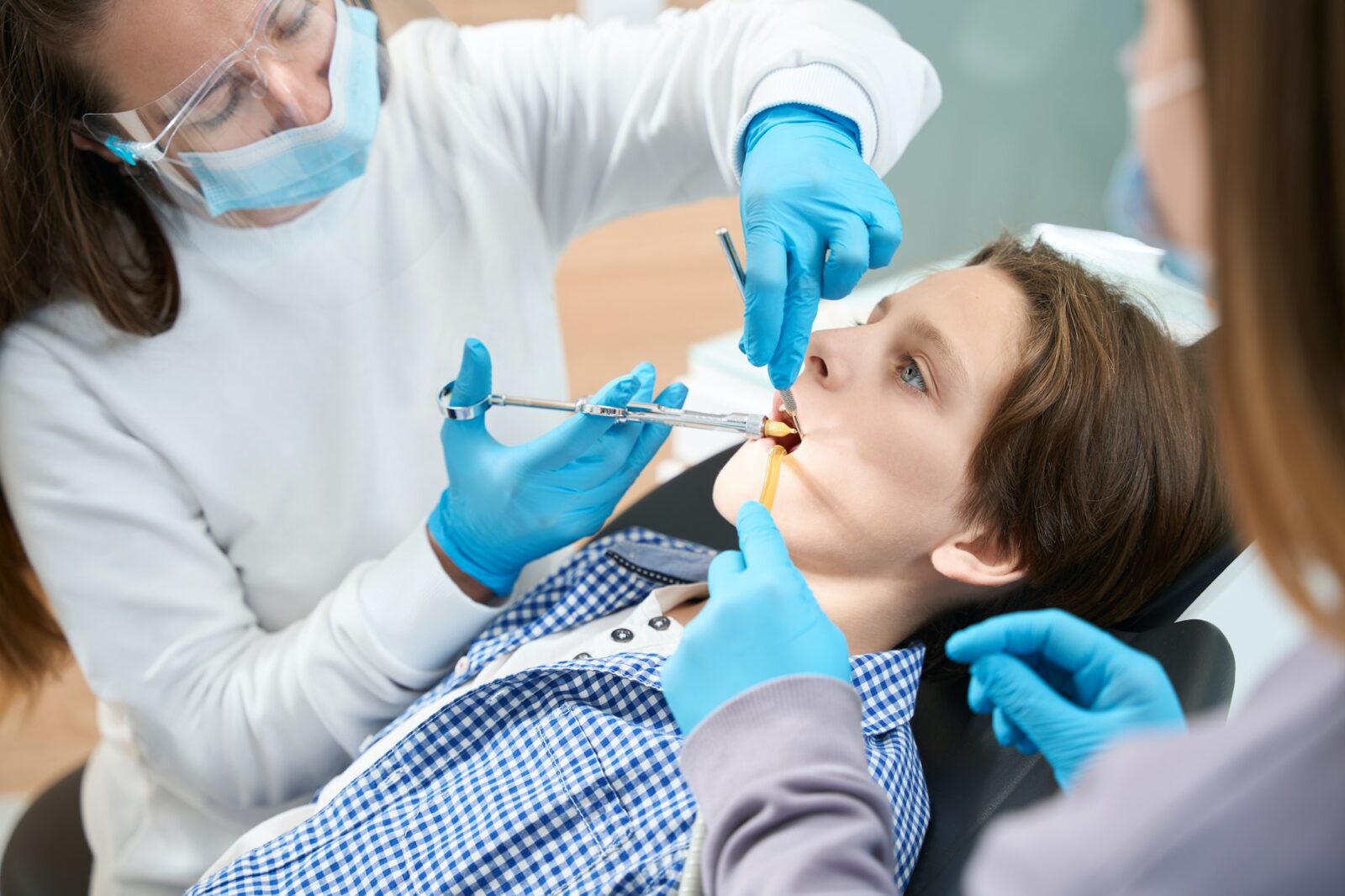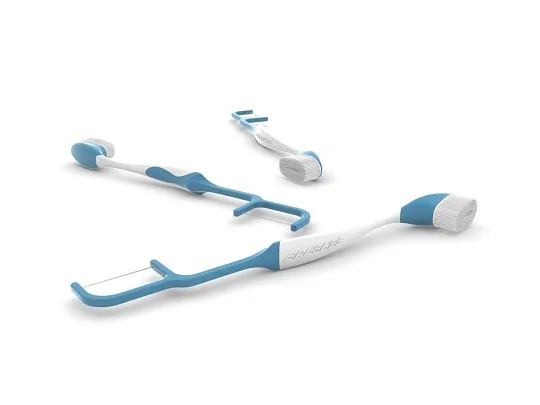Have you ever been curious as to why the enigmatic third molars, also known as wisdom teeth, exist in the first place? This all-encompassing guide will provide you with an in-depth understanding of the history and purpose of wisdom teeth, as well as their impact on your oral well-being. Furthermore, you will become well-versed in the prevalent problems that come with wisdom teeth and the different courses of action that can be taken to alleviate these complications. After reading this comprehensive article, you will have become an expert in all things wisdom teeth and will be able to make astute and well-informed decisions about your own oral health.
Table of Contents
What are wisdom teeth?
Wisdom teeth, the final set of teeth to emerge in the oral cavity, are situated at the posterior end of the mouth, succeeding the second molars, or the ‘rear teeth’. While it is not uncommon for individuals to grow zero wisdom teeth, one or two on each side of the mouth are typical. More often than not, when these molars are troublesome, they are extracted. It is essential to discern between impacted and non-impacted wisdom teeth. Impacted teeth have begun to develop within the oral cavity, but have ceased growing before reaching the gum surface. A large majority of people possess sufficient space in their mouths to allow for the growth of wisdom teeth. Nevertheless, some circumstances may lead to complications, and as a result, the removal of wisdom teeth is necessary.
Why do we have wisdom teeth?
The initial confirmation of the existence of third molars can be traced back to the Neanderthals and Homo erectus, who resided around 300,000 years ago. The precise reasoning behind the development of wisdom teeth in human beings is not entirely comprehensible, but it is assumed that they may have been advantageous in the past to our forebears who possessed bigger jaws and required additional teeth to masticate and grind firm foods such as meat, roots, and nuts. The records of fossils suggest that these primitive humans had a considerably high rate of obstructed wisdom teeth. In truth, it is thought that the absence of adequate space for these teeth to emerge is what prompted our ancestors to develop smaller teeth and jaws. Wisdom teeth in modern times are deemed as vestigial since they are not as beneficial as our other teeth, however, they still hold significance in the human historical account.
What are the symptoms of impacted wisdom teeth?

Impacted wisdom teeth are teeth that do not have enough room to grow properly and remain trapped beneath the gum tissue or partially emerge. Impacted wisdom teeth can cause a range of symptoms, including:
- Distress and swelling: Impacted wisdom teeth may cause discomfort and swelling in the gums and jaw region, particularly near the impacted tooth.
- Red and bleeding gums: The gums around the impacted wisdom tooth can become red, swollen, and tender. They may also bleed when you brush or floss.
- Challenges in mouth opening: Swelling and discomfort, resulting from impacted wisdom teeth, can make it difficult to chew and open the mouth correctly.
- Halitosis: Partially surfaced wisdom teeth can develop cavities, leading to the collection of bacteria that may cause bad breath.
- Headaches: The force created by impacted wisdom teeth can trigger headaches and, in more severe cases, even migraines.
What are some common conditions associated with impacted wisdom teeth?
Impacted wisdom teeth may give rise to various dental ailments and disorders, comprising pericoronitis, tooth decay, gum disease, cysts, tumors, crowding, and sinus problems.
Pericoronitis is an inflammatory or infectious condition that transpires when the gum tissue around a partially erupted wisdom tooth becomes agitated or infected.
When an impacted tooth partially breaks through the gum line, it may be challenging to clean the affected area, resulting in the accumulation of bacteria and plaque that can provoke tooth decay.
Difficulties in cleaning around the impacted wisdom teeth may also cause gum disease or periodontal disease, which can be a major concern for dental health.
In rare cases, impacted wisdom teeth can lead to the development of cysts or tumors in the jawbone.
Furthermore, impacted wisdom teeth can push against the adjacent teeth, causing them to shift or become misaligned, leading to bite problems and overall dental health complications.
Upper wisdom teeth may cause sinus pain, pressure, and congestion, leading to sinus infections or other associated problems.
How does age affect wisdom tooth impaction?
As age advances, the odds of wisdom tooth impaction are prone to increase. This is because wisdom teeth, which start developing in the jawbone during childhood, tend to continue growing until adolescence. Usually, they begin surfacing between the ages of 17 and 25, but the timing may vary among individuals.
A person’s likelihood of suffering from impaction grows with age due to the jawbone ceasing growth and solidifying, thereby constraining the space for wisdom teeth emergence. Moreover, wisdom teeth’s roots become longer and more firmly implanted in the jawbone, making extraction more challenging.
With age, the risk of developing complications from wisdom tooth impaction, such as infections, pericoronitis, and adjacent tooth damage, also heightens. This is because the longer the impacted teeth remain in the mouth, the more opportunity there is for the onset of these issues.
Nevertheless, it’s crucial to bear in mind that wisdom tooth impaction is not inevitable, regardless of age. Some individuals’ wisdom teeth grow without causing any difficulties, while others may never develop wisdom teeth.
What are methods to prevent wisdom tooth impaction?
Impeding the impaction of wisdom teeth is a complex undertaking as numerous factors, including genetics, jaw size, and positioning can influence the growth and development of these teeth. Nevertheless, several measures may aid in potentially mitigating the likelihood of wisdom tooth impaction:
Optimal oral hygiene practices such as regular brushing, flossing, and dental cleanings can assist in maintaining the health of the teeth and gums, thereby reducing the probability of tooth decay and gum disease that can contribute to impaction.
Early assessment of the growth and development of wisdom teeth by dental practitioners can facilitate the identification of any potential issues in their nascent stages before they morph into more severe complications. X-rays may be employed to appraise the positioning and growth of the teeth.
Certain lifestyle modifications such as smoking cessation, adherence to a wholesome diet, and limitation of alcohol intake may diminish the risk of dental complications and impaction. Implementing positive adjustments in these areas can be instrumental in mitigating the probability of impaction
What are some treatments for impacted wisdom teeth?

- Observation: In the event that the wisdom teeth that are impacted are not causing any symptoms or dental problems, the dental practitioner or oral surgeon may opt to observe them over time.
- Extraction: The most common treatment for impacted wisdom teeth is extraction. If the tooth is fully or partially impacted, the dental practitioner or oral surgeon may suggest removing it to prevent any potential complications and promote oral health. The extraction may be performed under local anesthesia, sedation, or general anesthesia, depending on the patient’s requirements and preferences.
- Exodus: When wisdom teeth are impacted and can be removed without surgery, they are usually removed without surgery. This procedure is known as an ‘exodus’ and is performed with a tool called an elevator.
- Orthodontic treatment: If one or more of your wisdom teeth are partially erupted, removing them won’t be necessary. If the teeth are still buried beneath the gum line, your dental practitioner may recommend orthodontic treatment. This procedure utilizes braces to reposition the teeth, preventing any issues with the adjacent teeth.
What is the cost of treating an impacted wisdom tooth?
The cost of treating an impacted wisdom tooth is subject to a range of factors that affect its complexity, such as the degree of impaction, symptom severity, procedure intricacy, dentist or oral surgeon location, and insurance coverage.
In the United States, the cost of impacted wisdom tooth extraction can oscillate from a few hundred dollars to several thousand dollars per tooth. The average cost of a simple extraction can amount to roughly $225 to $600, whereas a surgical extraction of an impacted tooth can cost $800 to $4,000 or higher.
There are dental insurance policies that cover a proportion of the cost of impacted wisdom tooth extraction, while others may not cover it at all. It is crucial to verify with your insurance provider what is included and the out-of-pocket expenses for which you may be held accountable.
Apart from the procedure’s cost, there may be additional charges for pre-operative consultations, X-rays, anesthesia, and post-operative follow-up care. It is fundamental to confer with your dentist or oral surgeon regarding the expenses associated with the procedure beforehand to evade any surprises.
While the cost of impacted wisdom tooth extraction may be a considerable expense, it is crucial to prioritize oral hygiene and attend to any issues with impacted teeth as soon as possible to prevent possible complications and ensure long-term dental health.
What are some risks of treating a wisdom tooth impaction?
When performing a medical or dental procedure to treat the impaction of wisdom teeth, there are certain risks that must be considered. Some of the possible risks and complications associated with treating impacted wisdom teeth include:
- Soreness and puffiness: It is normal to experience soreness and puffiness after extracting an impacted tooth, which can be mitigated with pain-relieving medication and applying ice packs.
- Infection: It is feasible to develop an infection following any dental operation, including extraction of an impacted tooth. The prescribing of antibiotics may reduce the risk of infection.
- Hemorrhage: Although some bleeding is expected after an impacted tooth extraction, excessive bleeding may necessitate additional treatment.
- Nerve damage: During the procedure, nerve damage is a possibility, which may result in numbness, tingling, or other unusual sensations in the face, lips, or tongue. In rare cases, nerve damage may be irreversible.
- Dry socket: Dry socket is a painful condition that can develop after a tooth extraction if the blood clot at the extraction site becomes dislodged.
- Harm to neighboring teeth or structures: In exceptional cases, the extraction procedure may cause harm to neighboring teeth or structures.
What is the proper aftercare for a wisdom teeth extraction?
Proper aftercare is essential to ensure a triumphant recuperation following the extraction of wisdom teeth. To achieve optimal results, consider the following general aftercare tips:
- Gently bite on a compress: Immediately post-treatment, bite down tenderly on a compress to lessen bleeding and encourage clotting. Replace the compress every 30 to 45 minutes until the bleeding subsides.
- Icing: Apply an ice pack to the affected region for 10 to 20 minutes intermittently to mitigate swelling and pain.
- Painkillers: Over-the-counter painkillers like ibuprofen or acetaminophen may help relieve discomfort and pain. Alternatively, your oral surgeon or dentist might prescribe medication to alleviate pain.
- Antibiotics: In certain circumstances, antibiotics may be prescribed to prevent or treat infection after wisdom tooth impaction treatment.
- Rest: Take ample rest and avoid strenuous activity for several days following the procedure.
- Avoid smoking: Smoking may hinder the healing process and heighten the risk of infection. It is imperative to abstain from smoking for at least 24 hours post-treatment.
- Consume a soft food diet: In the first few days following the procedure, consume soft foods like yogurt, pudding, and soup. Steer clear of hard, crunchy, or sticky foods that might irritate the extraction site.
- Oral hygiene: Brush your teeth gently, taking care not to disturb the extraction site. Refrain from rinsing your mouth vigorously or utilizing mouthwash in the first 24 hours. Post the initial day, rinse your mouth with warm salt water every few hours to maintain the cleanliness of the area.
- Follow-up appointments: Arrange a follow-up appointment with your dentist or oral surgeon to monitor your recuperation and ensure that there are no complications.



